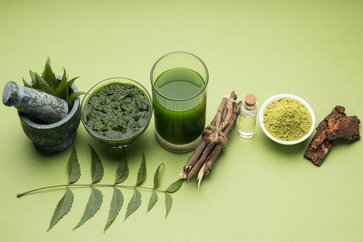Rice Water for Uti Relief: An Ayurvedic Remedy That Works
Urinary tract infections (UTIs) are among the most common bacterial infections affecting millions of people worldwide, especially women. A UTI occurs when harmful bacteria enter the urinary system, which includes the kidneys, bladder, ureters, or urethra, leading to inflammation and infection.
UTIs can range in severity, affecting various parts of the urinary system. The lower urinary tract, including the bladder (cystitis) and urethra (urethritis), is most commonly affected. Untreated infections can spread to the upper tract, leading to kidney infections (pyelonephritis). The primary cause of UTIs is Escherichia coli (E. coli), a bacterium found in the intestines.
This bacterium can travel to the urinary system and cause infection. Other pathogens, such as different bacteria, viruses, and fungi, can also lead to UTIs, but they are less common. Several risk factors can increase the likelihood of developing a UTI. Poor hygiene, sexual activity, urinary retention, pregnancy, diabetes, and anatomical abnormalities of the urinary tract all contribute to a higher risk. Taking precautions can help prevent infections in those at higher risk.
Common Symptoms of UTIs:
- Painful urination (dysuria): A burning sensation or discomfort while urinating is a hallmark symptom of a UTI.
- Frequent urge to urinate: An increased frequency of urination, often with little urine produced, is another common sign.
- Cloudy or strong-smelling urine: Infected urine may appear cloudy, have a strong or foul odor, or even contain blood.
- Pelvic pain: In women, UTIs can cause discomfort in the lower abdomen or pelvic area.
- Fatigue and fever: If the infection spreads to the kidneys (pyelonephritis), it can cause fever, chills, and general fatigue.
Overview of Natural Remedies for UTIs
While antibiotics are the most commonly prescribed treatment for UTIs, many people seek natural remedies to either complement conventional treatment or for milder cases. Natural remedies can offer supportive relief and may help reduce the frequency of UTIs. Common natural approaches include:
- Hydration: Drinking plenty of water to flush out bacteria from the urinary system.
- Cranberry juice: Believed to prevent bacteria from adhering to the bladder wall.
- Probiotics: Helping restore healthy bacteria in the urinary tract.
- Herbal remedies: Such as uva-ursi, garlic, and dandelion root, which are thought to have antimicrobial properties.
Rice Water as a Potential Remedy for UTIs
Rice water, the starchy liquid left behind after cooking rice, has been used in traditional medicine for various ailments, including digestive issues and skin conditions.
Recently, rice water has gained attention for its potential to help with urinary tract health. Although not as widely studied as other natural remedies, rice water is rich in nutrients, antioxidants, and anti-inflammatory compounds, which may help soothe the urinary tract and support healing.
In this context, rice water is proposed as a gentle, accessible remedy that could assist in alleviating the symptoms of UTIs or help prevent their recurrence.
While more research is needed to fully validate its effectiveness, rice water presents an intriguing option for individuals looking for alternative or complementary approaches to UTI management.
What is Rice Water?
Rice water is the liquid left behind after rinsing or boiling rice. It is a simple, yet nutrient-rich byproduct that has been used in various traditional cultures for centuries, particularly in Asian countries, for its beneficial properties.
The liquid is typically cloudy and has a starchy texture due to the release of starch from the rice grains during cooking or soaking. Rice water is easy to prepare at home and can be consumed or used topically for its potential health benefits.
There are two main methods for preparing rice water:
- Rinsing Method: Rice is washed before cooking, and the water used to rinse the rice is collected.
- Boiling Method: Rice is cooked in excess water, and the water is strained after cooking.
Rice water, especially the water from boiled rice, contains a variety of nutrients and compounds that are thought to have beneficial effects on health, including the urinary tract.
Nutritional and Medicinal Properties of Rice Water
Rice water is packed with nutrients and compounds that may provide a variety of health benefits. Though scientific research specifically on rice water’s impact on UTIs is limited, its general medicinal properties make it a promising natural remedy for supporting urinary tract health.
1. Rich in Vitamins (e.g., B Vitamins)
Rice water is rich in essential B vitamins, including B1, B3, and B6, which support cell, tissue, and nervous system health. These vitamins aid immune function, vital for fighting infections like UTIs. They also promote energy production and help the body cope with stress during illness and recovery.
2. Contains Antioxidants and Anti-Inflammatory Compounds
Rice water contains antioxidants like phenols, flavonoids, and ferulic acid, which help neutralize free radicals and reduce oxidative stress. By alleviating oxidative stress and inflammation, rice water may ease discomfort and pain from UTIs. Its anti-inflammatory properties can soothe irritated tissues in the urinary tract, aiding in recovery.
3. High in Starch, Which May Help Soothe and Hydrate the Urinary Tract
Rice water’s high starch content forms a gel-like substance that can soothe irritated tissues in the urinary tract, reducing burning sensations during urination. It also helps retain moisture, offering mild hydration benefits. Additionally, rice water may support healthy urine flow, aiding in flushing out toxins and bacteria to clear infection.
How Rice Water Can Help with UTIs
Urinary tract infections (UTIs) are caused by bacterial infections, typically affecting the bladder, urethra, or kidneys. While antibiotics are the primary treatment, hydration and inflammation reduction can aid recovery. Rice water, with its nutrient-rich composition, may support UTI recovery by promoting healing and alleviating symptoms. Here’s how:
1. Hydration and Flushing Out Bacteria
Staying well-hydrated is crucial for preventing and treating UTIs. Increased fluid intake boosts urine output, helping flush bacteria from the urinary system. This reduces the risk of infection and may dilute urine, easing the painful burning sensation during urination. Proper hydration supports overall urinary tract health.
In the case of UTIs, maintaining adequate fluid intake can:
- Encourage frequent urination, which helps expel bacteria from the urinary tract.
- Dilute urine, reducing its acidity and the burning sensation that often accompanies UTIs.
- Promote healing by maintaining the mucosal health of the bladder and urethra.
2. Role of Rice Water in Maintaining Fluid Balance
Rice water is an excellent hydrating option for those with UTIs. Its gentle, easily digestible composition provides hydration and nutrients without irritating the urinary system. The starchy liquid helps maintain electrolyte balance, promotes regular urination, and supports the body in flushing out infection-causing bacteria, aiding overall urinary tract health.
Potential Antimicrobial Properties
1. Research or Anecdotal Evidence on Rice Water’s Antimicrobial Effects
While research on rice water’s antimicrobial properties is limited, some evidence suggests it may have mild antibacterial effects. The starches, antioxidants, and phenolic compounds in rice water could inhibit harmful bacteria’s growth. Although it’s not a substitute for antibiotics in treating active infections, rice water may support the body’s natural defenses.
A few studies suggest that rice-based extracts have antimicrobial properties, though the evidence remains mostly anecdotal, particularly for UTIs. Traditionally, rice water has been used for minor infections and skin irritations, indicating its broader potential. Some compounds in rice, such as phenolic acids and flavonoids, are known for their antibacterial effects.
2. Potential for Rice Water in UTI Prevention
Rice water may help prevent recurrent UTIs by supporting hydration and maintaining a balanced urinary environment less favorable to bacterial growth. While not a cure, it can serve as a natural adjunct to conventional treatments, especially for those prone to frequent UTIs, aiding in overall urinary tract health.
Soothing the Urinary Tract
1. Reducing Irritation and Inflammation in the Urinary System
Rice water’s anti-inflammatory compounds, like ferulic acid and flavonoids, may soothe inflamed tissues and reduce UTI discomfort, especially during urination. Its starchy texture can coat the urinary tract, providing relief from burning and irritation. By reducing chronic inflammation, rice water may ease symptoms and support healing during a UTI.
2. Providing a Gentle, Soothing Effect
Rice water’s mild, soothing properties make it beneficial for UTIs. Its starches form a gel-like consistency, providing a hydrating layer over irritated tissues, easing discomfort without worsening irritation. Additionally, rice water is gentle on the digestive system, making it a good option for those with nausea or sensitive stomachs.
How to Prepare Rice Water for UTIs
Preparing rice water is simple and can be done with basic ingredients commonly found in most kitchens. Below is a step-by-step guide to making rice water, along with some tips on storing and consuming it for potential benefits in managing UTIs.
Step-by-Step Guide on Making Rice Water
There are two primary methods for preparing rice water: the rinsing and soaking method and the boiling method. Both methods are effective, but the boiling method typically yields a more nutrient-rich rice water.
1. Method of Rinsing and Soaking Rice
This method is quicker and requires only rinsing the rice, which removes some of the starch and debris. It is the simplest way to make rice water.
Steps:
- Measure about 1/2 cup of uncooked rice. You can adjust the quantity depending on how much rice water you want to make.
- Rinse the rice in cold water to remove dirt, excess starch, and impurities.
- After rinsing, add the rice to a clean bowl and cover it with about 2-3 cups of clean water.
- Let it sit for about 30 minutes to 1 hour. During this time, the starch, vitamins, and minerals from the rice will be released into the water.
- Once soaking is complete, strain the rice water into a clean container, discarding the rice grains. The resulting liquid is your rice water.
2. Alternative Method: Boiling Rice in Excess Water
This method involves cooking the rice in excess water and then straining the water from the cooked rice. This method typically produces a more concentrated rice water with higher nutrient content.
Steps:
- Measure 1/2 cup of uncooked rice.
- Place the rice in a saucepan and add about 4 cups of water (more water than you would typically use for cooking rice).
- Bring the water to a boil and let the rice cook as you normally would. You can cook the rice until it’s fully cooked or let it cook for a few minutes to release more starch into the water.
- Once the rice is cooked, strain the water into a clean container, separating the rice from the liquid.
- Let the rice water cool to room temperature before using it.
Tips for Storing Rice Water
Rice water can be stored for future use, but it’s important to keep it in the right conditions to maintain its freshness and avoid bacterial contamination.
How Long Rice Water Can Be Kept:
Rice water can typically be kept for up to 2-3 days when stored in the refrigerator. If kept at room temperature, it should be used within 24 hours. Always check for signs of spoilage, such as sour smells or discoloration, before using it.
Best Way to Store Rice Water:
Store rice water in an airtight container to prevent contamination and preserve its nutrients. Glass jars or bottles with lids work well. Refrigerating the rice water ensures it remains fresh for a longer period. If you plan to use it within a day or two, room-temperature storage is fine.
Best Way to Consume Rice Water
To maximize the potential benefits of rice water for UTIs, it’s important to consume it in the right way. Here are some guidelines.
1. Temperature:
For optimal comfort, consume rice water at room temperature or cool. Drinking it cold may not be as soothing for the urinary system, and warm rice water might cause discomfort for people with sensitive digestion. Consuming it at room temperature allows for a more pleasant experience, especially if you’re using it as a remedy during a UTI.
2. Frequency of Consumption:
Drinking rice water once or twice a day can aid digestion and hydration, helping alleviate UTI symptoms. While not a cure, its soothing properties may support recovery. For frequent UTIs, regular consumption (e.g., once daily) may help maintain fluid balance and potentially reduce the risk of recurrent infections.
3. When to Consume Rice Water:
Drinking rice water after meals can soothe both the digestive and urinary systems. It may aid digestion and help alleviate UTI symptoms like painful urination or bladder discomfort. By providing hydration and calming irritated tissues, rice water can offer relief, but it should complement, not replace, medical treatment.
How to Use Rice Water for UTIs
Rice water, with its hydrating and soothing properties, can be an effective addition to a UTI management routine. Although drinking rice water is the most common method of using it, there are also topical uses that may help relieve discomfort in the urinary tract. Here’s how to incorporate rice water into your daily routine for UTI relief:
Drinking Rice Water
Drinking rice water helps hydrate the body and flush bacteria from the urinary system, which may promote healing and reduce UTI symptoms. Additionally, its anti-inflammatory and soothing effects may alleviate discomfort.
1. Recommended Daily Intake
For most people, 1/2 to 1 cup of rice water per day is a good starting point. This amount can be adjusted based on personal preference or the severity of the UTI symptoms. The goal is to stay hydrated while providing the body with the nutrients found in rice water, such as B vitamins, antioxidants, and anti-inflammatory compounds.
2. When and How Often to Drink It
It’s best to drink rice water once or twice a day, depending on your needs and tolerance. Here are a few guidelines:
- After meals: Drinking rice water after meals can help with digestion and provide hydration. The starchy liquid can also coat the lining of the urinary tract, offering a soothing effect.
- Throughout the day: You can drink smaller portions (about 1/4 to 1/2 cup) throughout the day, particularly if you find it easier to drink smaller amounts frequently. This can help maintain hydration and support the body’s natural ability to flush out bacteria.
- During UTI flare-ups: If you’re experiencing a UTI, drinking rice water at regular intervals can help soothe irritation, promote hydration, and support the urinary system’s natural healing processes. Ideally, you want to drink it at least once in the morning and again in the evening.
It’s important to remember that rice water is a supportive remedy and should not replace medical treatment for a UTI. If you have a UTI, particularly if symptoms are severe, it’s crucial to consult a healthcare professional for appropriate antibiotic treatment.
Other Topical Uses
In addition to drinking rice water, you can apply it topically to relieve irritation and inflammation in the urinary tract. While drinking rice water helps hydrate and soothe from the inside, external applications can provide targeted relief.
1. Warm Compress
A warm compress using rice water can be applied to the lower abdomen or pelvic area to soothe irritation or inflammation caused by a UTI.
Steps to make and use a warm rice water compress:
- Heat the rice water until it’s warm but not too hot (test the temperature to avoid burns).
- Soak a clean cloth or towel in the warm rice water and wring it out.
- Apply the warm, damp cloth to your lower abdomen or pelvic area where you’re experiencing discomfort.
- Leave the compress on for about 10-15 minutes.
- Repeat this process a few times a day, especially if you are experiencing pelvic or bladder discomfort.
This external application can help relax muscles, reduce inflammation, and ease pain associated with UTIs.
2. Sitz Bath
A sitz bath involves sitting in warm water that can help soothe the perineal area (the area between the genitals and the anus). Adding rice water to the bathwater may provide extra soothing and anti-inflammatory benefits.
Steps for a rice water sitz bath:
- Prepare a small bathtub or basin that’s comfortable enough for you to sit in.
- Fill it with warm water (not too hot, to avoid irritation).
- Add about 1-2 cups of rice water to the bathwater. Stir to mix the rice water evenly into the water.
- Sit in the rice water bath for 10-15 minutes.
- Repeat the sitz bath once or twice a day, especially if you are experiencing pain or irritation in the genital area.
A sitz bath with rice water can help relieve external irritation or burning sensations that might accompany a UTI.
Precautions and Considerations
While rice water may offer soothing and supportive benefits for managing urinary tract infections (UTIs), it is important to consider when it might not be effective or appropriate, and to understand its role as a complementary remedy rather than a primary treatment.
When Rice Water Might Not Be Effective or Appropriate
1. For Severe UTIs Consult a Professional Medical
Rice water is not a cure for UTIs, especially in severe cases or those caused by antibiotic-resistant bacteria or kidney infections. It cannot treat the underlying infection. Relying on rice water alone may delay proper medical treatment, potentially worsening the condition. Professional care is essential for effective treatment.
If you experience symptoms such as:
- High fever
- Severe abdominal or pelvic pain
- Blood in urine
- Back or side pain
Seek medical care right away. These could be signs of a more serious UTI or complications that require urgent antibiotic treatment.
2. Potential Allergic Reactions to Rice or Contamination
Although rare, some individuals may be allergic to rice or its components. Symptoms of an allergy may include:
- Skin rashes or hives
- Itching
- Swelling (especially around the face or mouth)
- Difficulty breathing
If you suspect you have a rice allergy or sensitivity, avoid consuming or using rice water and consult with a healthcare provider for guidance.
Additionally, as with any homemade remedy, contamination of rice water is a concern if it is not prepared or stored properly. Always ensure that the rice water is fresh, stored in a clean, airtight container, and kept at the proper temperature (refrigerated for no more than 2-3 days). If rice water smells sour, shows signs of mold, or has an unusual appearance, discard it and prepare a fresh batch.
Importance of Consulting a Healthcare Provider
While rice water can be a helpful adjunct for managing mild UTI symptoms, it should not replace professional medical care. Consulting a healthcare provider is essential, especially if you suspect you have a UTI or if symptoms persist.
1. The Role of Antibiotics in Treating UTIs
Antibiotics are essential for treating UTIs, targeting the bacteria causing the infection. It’s crucial to complete the full course, even if symptoms improve. While rice water may help soothe discomfort, it doesn’t eliminate bacteria and should not replace antibiotics, as relying solely on it could lead to complications.
2. Rice Water as a Supportive Remedy, Not a Replacement for Medical Treatment
Rice water may help soothe UTI symptoms like inflammation and discomfort due to its anti-inflammatory and hydrating properties. However, it should be viewed as a supportive remedy, not a primary treatment. It can aid hydration and symptom management, but antibiotics and medical care are essential for effective treatment.
Key Takeaways:
- For mild UTIs, rice water can be a helpful adjunct to hydration and symptom management.
- For severe or complicated UTIs, medical treatment with antibiotics is crucial, and rice water cannot replace this.
- If you have any concerns, including allergies or complications, consult a healthcare provider before using rice water as part of your UTI management.
Rice water can be a gentle, natural remedy to support hydration and soothe the urinary tract during a UTI, but it should not be relied upon as a primary treatment. For severe or complicated UTIs, professional medical treatment with antibiotics is essential.
Resources:
- Evaluation of Antibacterial and Antibiofilm Activity of Rice Husk Extract against Staphylococcus aureus(1)
- Nutritional Analysis and Antimicrobial Activity of Fermented Rice Water(2)
- Antibacterial Effectiveness of Rice Water (Starch)-Capped Silver Nanoparticles Fabricated Rapidly in the Presence of Sunlight(3)
- Consumption of White Rice and Brown Rice and Urinary Inorganic Arsenic Concentration(4)

























